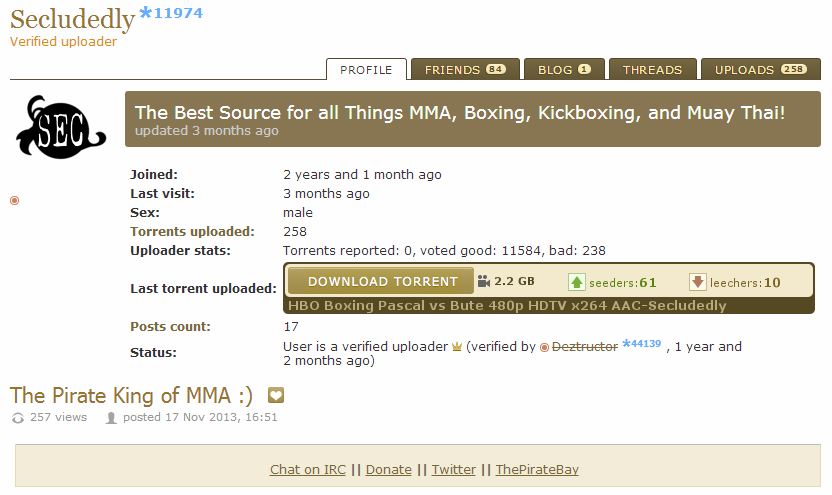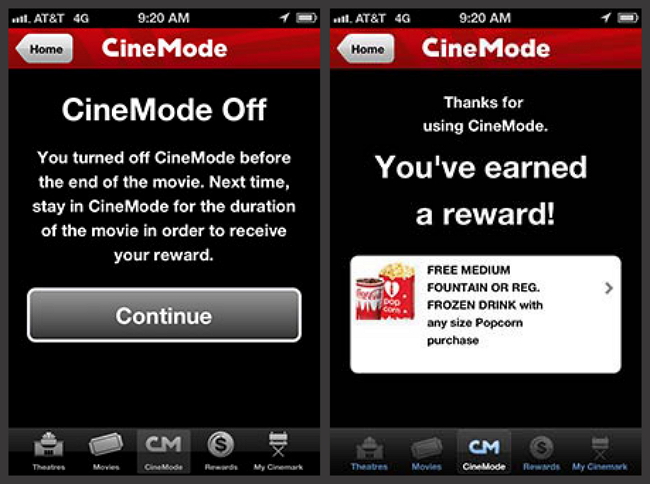Dotcom Thanks RIAA and MPAA for Mega’s Massive Growth
jeudi 1 mai 2014 à 19:26 Acting on a lead from the entertainment industry, the U.S. Government shut down Megaupload early 2012.
Acting on a lead from the entertainment industry, the U.S. Government shut down Megaupload early 2012.
Exactly a year later Kim Dotcom made a comeback with a new file-storage venture. Together with several old colleagues and new investors, Mega was launched. The new service, which has a heavy focus on privacy and security, has expanded ever since.
This morning Dotcom posted an image showing how user uploads have increased more than 300% over the past six months. The graph doesn’t specify the scale, but the New Zealand-based entrepreneur told TF that the service now processes over half a billion uploads per month.
That’s more than 10,000 files per minute….
“We are experiencing massive growth. We can’t add new servers and bandwidth fast enough,” Dotcom tells us.
According to Mega’s founder there are several factors that have contributed to the increasing interest in the service.  Ironically, Dotcom believes that the same people who destroyed Megaupload are now partly responsible for the success of Mega.
Ironically, Dotcom believes that the same people who destroyed Megaupload are now partly responsible for the success of Mega.
“There are several growth factors. People spend more time at the computer due to the cold weather, the lawsuits by MPAA and RIAA which advertised Mega, and the ongoing advertising from the dumbest ever U.S. Department of Justice case,” Dotcom says.
“Some users get pleasure from the fact that the US government and Hollywood hate Mega’s success and that I continue to expose them. The more people use Mega the more powerful our defense becomes. So, why wouldn’t Mega grow like crazy?” he adds.
The continuing debate about the NSA’s mass-surveillance is also likely to have helped Mega. Unlike other popular cloud hosting services, Mega encrypts all stored files so they can’t be snooped on. Similarly, the fact that former U.S. Secretary of State Condoleezza Rice joined Dropbox may have also had an impact according to Dotcom.
During the months to come Mega will work on their recently announced backdoor stock market listing, which the company hopes to complete next year. In addition, the cloud hosting service will roll out many new features, all focused on counter surveillance.
“The people of the Internet love us. And we haven’t even launched our encrypted communication suite yet. That’s like a point-to-point encrypted Skype on steroids, running in your browser,” Dotcom tells us, teasing Mega’s upcoming tools.
With the ongoing legal battle against the U.S. Government and civil cases against the MPAA and RIAA, Mega is guaranteed a regular place in the spotlight. In any case, we certainly haven’t heard the last of Dotcom and his team yet.
Source: TorrentFreak, for the latest info on copyright, file-sharing and anonymous VPN services.


 While recording a movie strictly for personal use is entirely legal in UK cinemas, the same definitely cannot be said about the United States. Recording or ‘camming’ a movie in the U.S. can result in jail-time, particularly if the activity is connected to subsequent bootlegging or illegal online distribution.
While recording a movie strictly for personal use is entirely legal in UK cinemas, the same definitely cannot be said about the United States. Recording or ‘camming’ a movie in the U.S. can result in jail-time, particularly if the activity is connected to subsequent bootlegging or illegal online distribution.


 Most seasoned visitors of torrent sites and streaming portals know that many of the “download” and “play” buttons present are non-functional, at least in the regular sense.
Most seasoned visitors of torrent sites and streaming portals know that many of the “download” and “play” buttons present are non-functional, at least in the regular sense. 